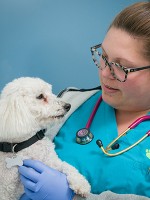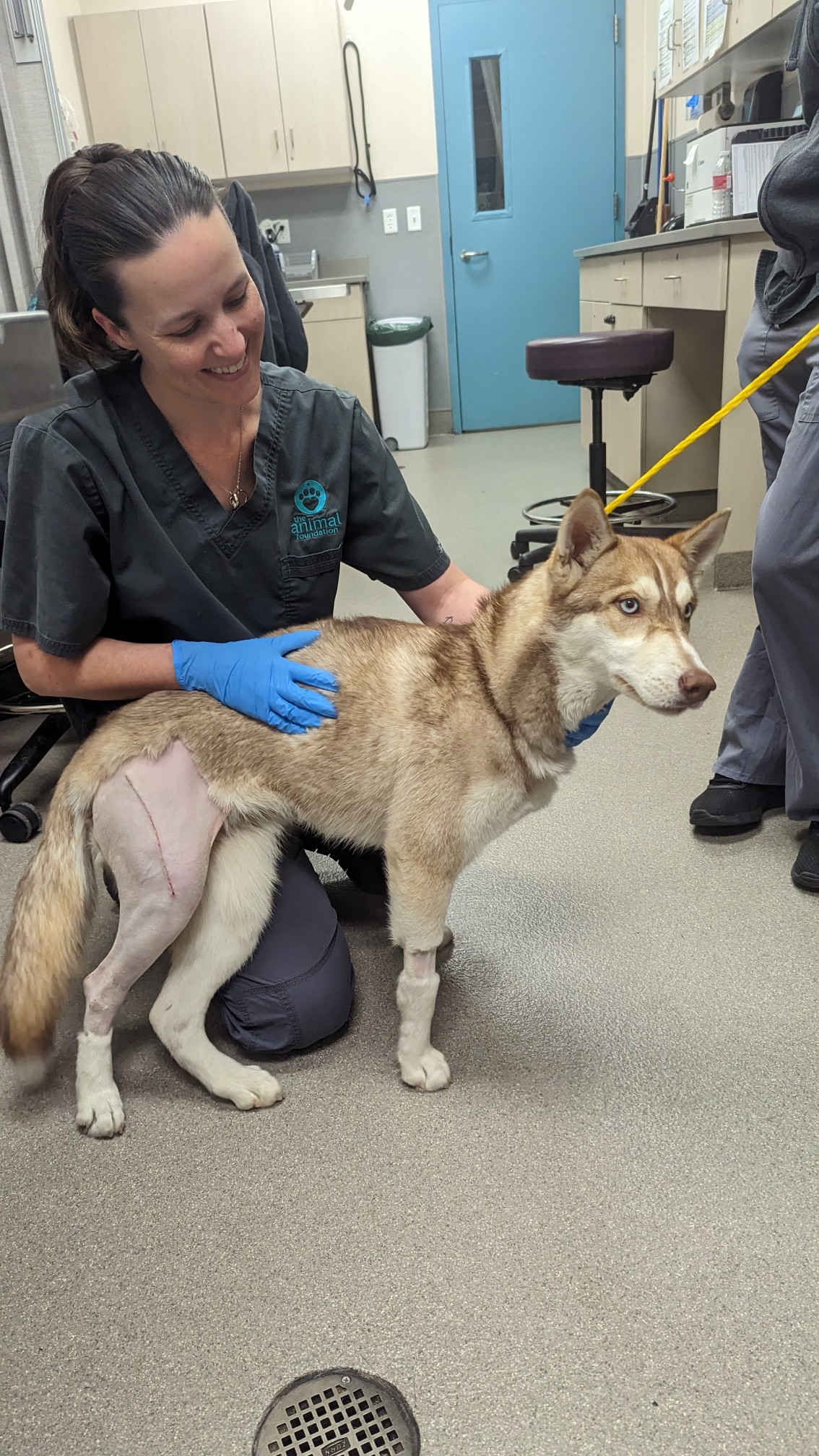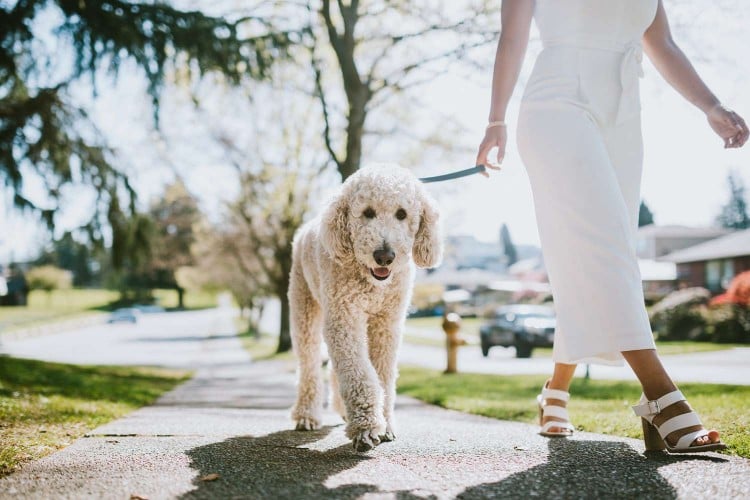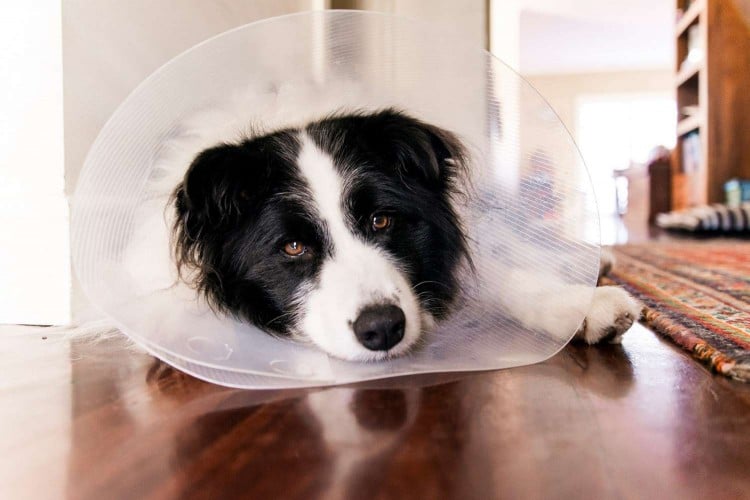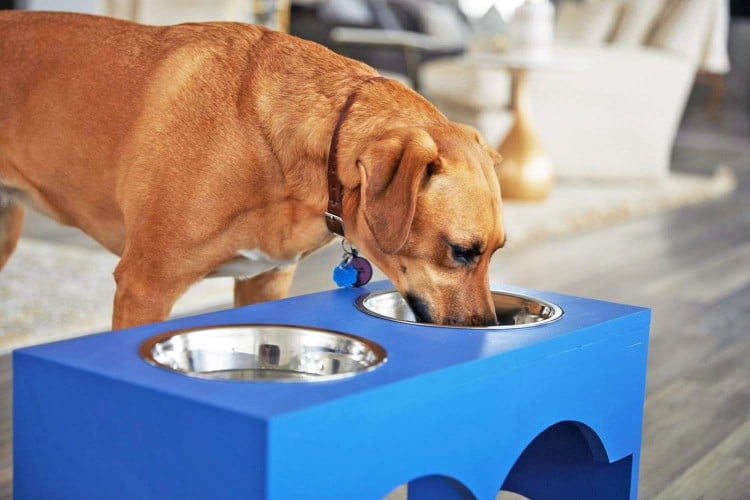12 Health Resolutions You Should Be Making for Your Pet in 2023
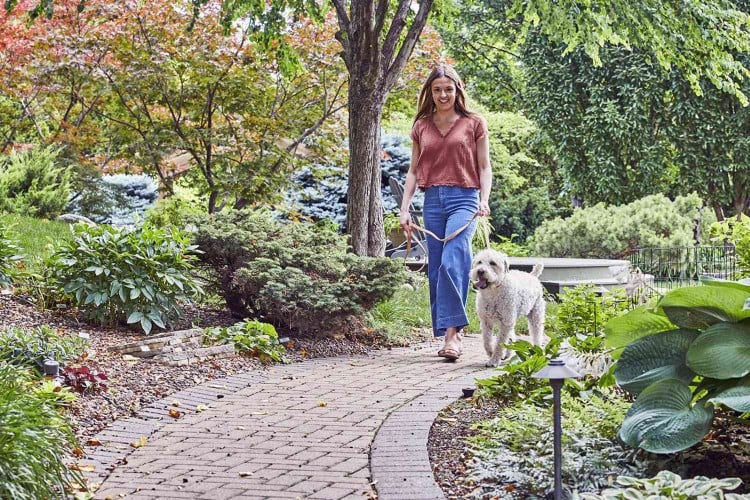
The New Year is a time of fresh starts and life changes—pets included! They can benefit from starting new, healthy habits, Natalie Marks, DVM, CVJ, co-founder of Top Vets Talk Pets, says. "I think most people would agree that one of the few bright spots in 2020 was the companionship and love of their pets. So while we're all making resolutions for the year to come, it's equally important to think about ways to provide the best physical and emotional health for our cats and dogs."
But don't stress, making tweaks to your pet's routine doesn't have to be overwhelming. "Even making the smallest changes to your pet's life now can pay off later—those good habits add up over time," says Michele Pietrzak, DVM, medical director of VCA Met Vet West.
Consider these resolutions to get the New Year started off on the right paw for your pet.
1. Be Active Everyday
Boredom is the root of many behavior problems in cats and dogs. To keep pets happy (and healthy!), daily exercise is a must, Pietrzak says. Besides taking your dog on a walk, you can also play fetch indoors, run around the house together, or even train your dog to walk on a treadmill. Cats enjoy chasing and pouncing on toys and climbing up cat towers.
13 Indoor Games for Dogs To Keep Your Clever Pet Active and Engaged
2. Switch to a Healthier Diet
Have you walked down a pet store's food aisles lately? The options of what to feed your cat or dog seem endless. It's easy to see why someone might just pull the nearest bag off the shelf and go. But cats and dogs have very specific nutrition and diet requirements for how much proteins, fats, carbohydrates, and calories they need each day, Marks explains. The best diet for your pet also depends on their age and disease conditions. Talk to your veterinarian to get a pet food recommendation that you know you can trust.
3. Do Something Fun Every Day
"[The pandemic] showed us what it's like to stay home every day, and it can be very stressful," Pietrzak says. "Humans hate to be bored and so do our pets."
Make sure your pet has a variety of toys to play with and brain games because mental stimulation is important. You can hide treats or kibble around the house for your pet to find or use a puzzle feeder to make a game out of feeding time. You can also teach your pet a new trick, which helps keep their mind sharp and strengthens your bond.
"Even the TV or radio can provide enrichment for your furry pal when you can't be there," Pietrzak notes. "But when you're home, don't forget to talk to your pets. They're the best listeners."
4. Spruce Up the Home
Show your furry pal how much you appreciate them by adding a few pet-friendly touches to your space. For cats, think about adding another litter box, scratching post, or cat tree to the house. Dogs might like a cushy new bed and some calming music.
Want your pet to relax more? Both cats and dogs respond to stress-relieving pheromone diffusers and sprays.
"One of my clients thought their cat was bored and made a resolution to provide more fun for their kitty," Shawna Huston, DVM, medical director of VCA West Shore Animal Hospital, recalls. "I recommended adding a window perch and setting up a bird feeder outside the window. Now the cat loves to sit there for hours watching all the animals."
8 Creative Cat Furniture Pieces for Any Space
5. Try Something New
Is there an activity you have always wanted to try with your pet? This is a great time to enroll in classes to learn something new together. If your pet loves people and you want to help others, consider training to become an animal-assisted therapy team. Dogs with boundless energy may enjoy dog sports like canine agility or dock diving. Inquisitive dogs also enjoy the mental stimulation of canine nosework. If you have a pet who loves to work and train, check out specialized training classes in your area. You may even be able to train your pet well enough to participate in obedience competitions. Some animals can even be trained to perform a special job, like search-and-rescue assistance.
6. Rethink Portion Sizes
It's easy to overfeed pets, especially when we associate food with love. But, says Marks, portion control is something all pet parents need to be mindful of. "Feeding pets too much causes obesity, which is one of the leading diseases we see in both dogs and cats. It increases the risk of heart disease, arthritis, diabetes, and high blood pressure." The solution: Use a measuring cup to give your pet the exact amount of food that keeps them healthy.
7. Start a Home Grooming Routine
Every dog needs some level of grooming. For some dogs, this means regular trips to the groomer for haircuts. Many dogs never need a haircut, but they still need nail trims, coat brushing, ear cleaning, and periodic baths. If you typically do these things at home, you may find yourself losing track of time or procrastinating. It happens sometimes! Unfortunately, grooming delays can cause nails to grow too long and ears to become dirty or infected. At the very least, putting off baths can lead to that dreaded doggy odor. Do yourself and your dog a favor by scheduling regular at-home grooming sessions. Put them on your calendar and set them to recur as needed (this will vary from dog to dog).
8. Brush Your Pet's Teeth More Often
Imagine what it would be like if you only brushed your teeth once a year. Eww, gross! Lack of daily dental hygiene is why most dogs and cats have some form of oral disease by age three, according to the American Veterinary Medical Association.
Try brushing your cat or dog's teeth on a regular basis with a pet-friendly, enzymatic toothpaste, Pietrzak advises. If your pet won't tolerate a toothbrush in their mouth, consider a veterinary-approved water additive or dental chew. Ask your veterinarian for a recommendation.
9. Make New Friends
While a kitty may thrive with your affection alone, many dogs enjoy socializing with other pups. "You can encourage socialization, and separation from you, by taking your pooch to doggy day camp," Huston says. "It's a good way for them to burn energy, interact with other dogs, and help your pet get used to being separated from you."
Other options include visiting a dog park, setting up doggy playdates with friends, or even getting your pet a companion.
10. Get Regular Checkups
Don't just go to the veterinarian when your pet is sick—make sure your four-legged friend gets two wellness visits a year. Besides staying up-to-date with vaccinations, regular vet checkups can identify health problems early when they're often easier to treat. "Preventive care can be a lifesaver," Pietrzak says.
11. Prepare for Emergencies
No one wants to imagine a worst-case-scenario when it comes to their beloved animal companions. Unfortunately, emergencies do happen, but being prepared can make it much easier to handle. Prepare a first-aid kit for your pet and learn how to use it. Take a pet CPR course or ask your veterinarian for instructions so you will know how to respond if a pet stops breathing. Many pet CPR classes cover other first aid, including what to do if a pet is choking or bleeding.
12. Save for Pet Costs
We all know that pet supplies and services can get expensive, but our animal friends are well worth it! This year, why not start a pet savings account to help offset the cost of pet care? These funds can help cover the cost of emergency care and medical procedures. Plus, the money is sure to come in handy to offset the cost of your pet's veterinary care, preventive medications, food, toys, and other supplies. If you find yourself with extra pet savings at the end of the year, you can use it to buy your furry friend a special gift, like a fancy bed or interactive toy.

